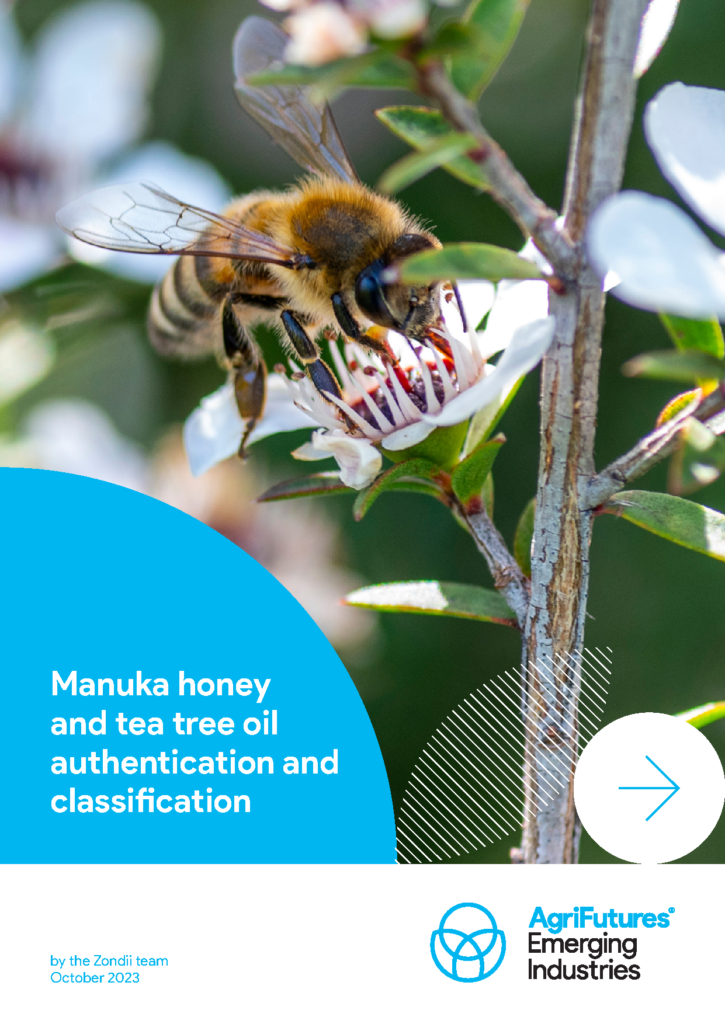The Australian Manuka honey industry produces approximately 650 tonnes of honey per annum. Manuka honey is highly valued for its non-peroxide antibacterial properties, mainly attributed to its exclusive content of methylglyoxal (MGO).
Similarly, the Australian tea tree oil industry produces an estimated 1,100 tonnes of oil with a farm gate value of $45 million per year. About 90% of production is exported to more than 70 countries, with major markets in North America and Europe. Tea tree oil has recognised antiseptic, anti-bacterial, anti-fungal, anti-inflammatory and anti-viral properties, and is widely formulated into antiseptic, cosmetic and personal care products.
A major threat to both industries is food fraud, which can erode consumer trust and compromise consumer health and safety. Emerging technologies can potentially help combat the issue through detecting adulteration without the need for expensive laboratory testing. Within this context, this project sought to determine the authenticity of Manuka honey and tea tree oil using economically viable hand-held testing devices or smartphone technology.
The findings showed that patented technology accessed via a smartphone is a plausible option to authenticate the adulteration status and origin of Manuka honey, and the adulteration status of tea tree oil. Further research beyond this proof-of-concept study is required to determine whether the smartphone detection tool is effective outside a defined laboratory environment and can be used in more realistic application scenarios.





